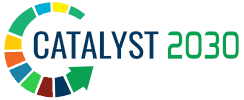The exploration of power in society is not new. Until recently, much of the discourse around power was focused on clarifying the nature and location of power. However, current narratives are moving us towards more relational views about power. These new orientations are significantly affecting the field of systems change. We are now more than ever aware that reshaping of power dynamics is crucial for a system’s transformation to be sustained. However, understanding what power dynamics changes need to occur only takes us so far. Whereas there is solid agreement in the field about changes that need to occur (for instance, reforming governance structures to include more people of color in decision-making), there is little clarity about how this change can occur, what are the conditions that allow it to take place – and stay in place – in an equitable way.
The Collective Change Lab would like to offer the learnings from their study and dialogue with practitioners that have significantly changed power dynamics in the systems and communities. From this experience we have begun to conclude that for power dynamics to really change in ways that shift systems towards equity and justice we must not only be aware of roles and privilege, but also of how we engage to and with others. Power is a relational concept then the locus of control, where it can be transformed is in the interactions (Cindy Suarez – The Power Manual) . One doesn’t change power alone (no matter how many anti bias courses one takes), WE change power together. We are calling this concept Whole Power.
We define Whole Power as: when a diverse community feels a more balanced sense of agency towards shared system values. There are two dimensions to this definition that are important to highlight and further define:
Collective Agency: Feeling among diverse stakeholders that they can make choices and decisions to influence events and have an impact on their world
Shared Systems Values: Beliefs, standards of worth, principles and behavior that are shared across stakeholders in a system
Whole Power builds on more recent relational views of power in which diverse individual agency and influence should be balanced in order to achieve systems transformations. It moves us from seeking a transactional approach to power focused on applying pressure, to a more relational approach involving collectives working and dreaming together to achieve true transformational change. In this context we see that the more balanced sense of agency there is in a system, the more many people in the system – not just decision makers – feel they have relational influence. We define relational influence as the depth and breadth of relationships one has that exhibit reciprocity or, said another way, are mutually beneficial.
Conceiving Power in this way leads us to seeking experiences of being in a sustained, authentic, deep relationship with others, given that what transforms power is not (only) who is in control or not, but when “all” of us (authentically) interacting together learn from and about each other and become open to new realities.
During this sessions participants will:
Hear from practitioners and thought leaders that have been able to transform power dynamics in systems and communities.
Develop a deeper and more holistic understanding and experience of Whole Power and elevate our and our organizations’ awareness of interdependence with others and move away from polarizing narratives.
Explore concrete ways to change behaviors and approaches to nurturing Whole Power such as engaging and supporting collective trauma and healing.
Transforming Systems Through Whole Power
03 May 2023 | 20:00 - 21:30
None of the above
Storytelling Session
The hosts
Sustainable development goals
Session Recording
Event sign up details
This event has already taken place
